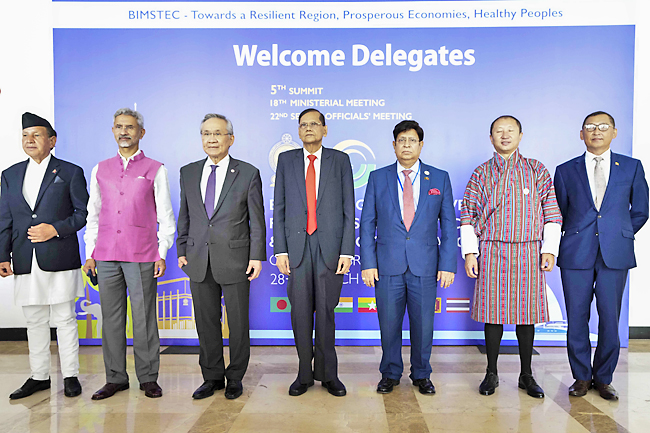COLOMBO, SRI LANKA (AP) – An organisation of seven Bay of Bengal nations said its members must urgently use their geographical advantage and other resources to address their post-pandemic vulnerabilities and collectively strengthen their ability to face future calamities.
In a declaration on the final day of a three-day summit yesterday, the group, the Bay of Bengal Initiative for Multi Sectoral Technical and Economic Corporation (BIMSTEC), said its members resolved to work together to combat poverty, natural disasters, climate change, pandemics and transnational crime.
They also agreed to work toward food and energy security and strengthen their links to increase trade, investment, tourism and technology, and offset economic losses caused by the COVID-19 pandemic.
“The developments in Europe in the last few weeks have raised a question mark on the stability of the international order. In this context, it has become important to make BIMSTEC regional cooperation more active,” Indian Prime Minister Narendra Modi said in a virtual speech.
“It has also become imperative to give more priority to our regional security.”

He said India will contribute USD3 million to revive the BIMSTEC Centre for Weather and Climate to enable cooperation in disaster management.
Sri Lanka hosted the fifth BIMSTEC summit in its capital, Colombo. Leaders of the host country and of Bangladesh, Bhutan, India, Myanmar, India, Nepal and Thailand all addressed the summit virtually.
Six foreign ministers took part in an officials’ meeting on Tuesday but the foreign minister of Myanmar who was earlier scheduled to participate in the meeting joined virtually.
Officials and ministers of the member countries signed three agreements on mutual legal assistance in criminal matters, a BIMSTEC technology transfer facility and cooperation between diplomatic academies.
Thailand took over as BIMSTEC’s chair nation for the next two years.



















































